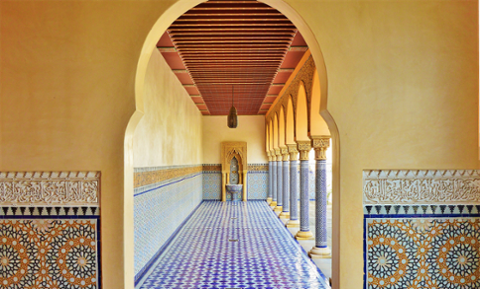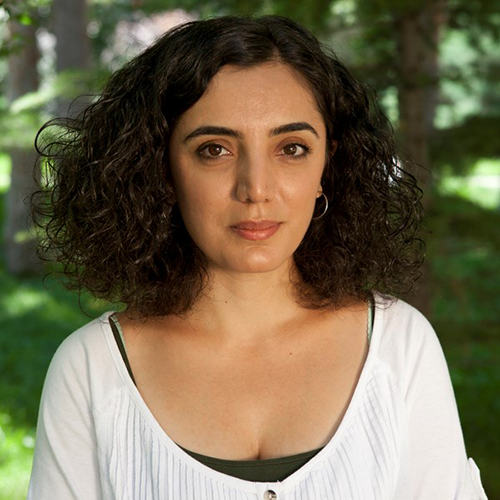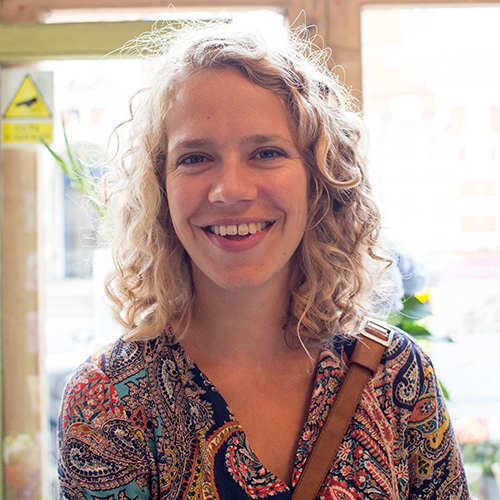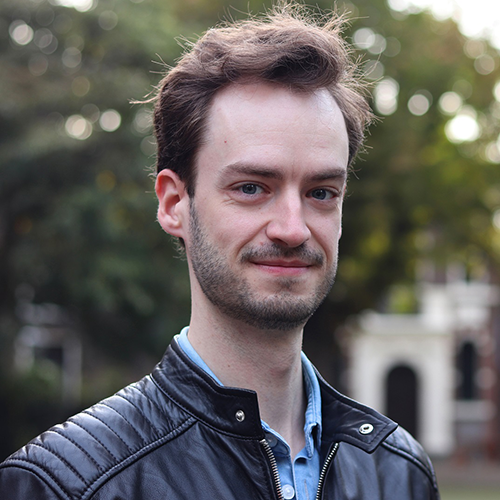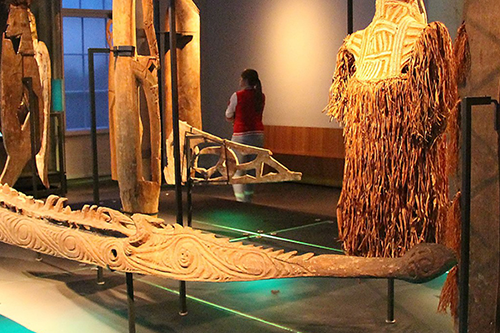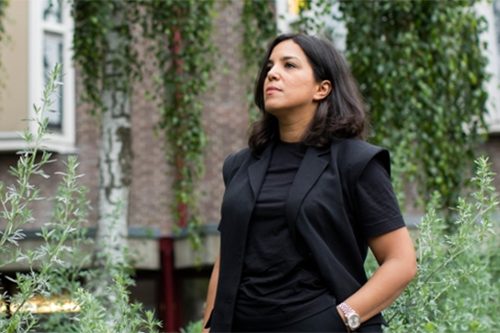What makes our research unique?
Past the pandemic: now what?
How can countries emerge stronger from the COVID-19 crisis? That is the question that student Florence Fontaine is looking into. She participates in PRINS, a programme in which students of International Studies work as consultants to solve societal questions for clients.
‘Together with thirteen other students, I am working on a project for the Ministry of Foreign Affairs. We are studying the recovery of developing countries after the COVID-19 crisis. In doing so, we focus on the Sustainable Development Goals.
Everybody does their own research, but we each have our own role. I, for example, make sure that all of the texts form a coherent piece and that we have a video at the end of the project.
Eventually, the goal is to deliver a real consultancy report. It is not always easy to work together with so many different people, but in the future I want to work in an international field. This is what will be expected of me there. This way, I am already working on the required skills.’
Projects and partners
-
Perfect podcasts
How do you make a city sound 'beautiful'? How did female spies live? Is Joe Biden the new Franklin D. Roosevelt? Our academics regularly guest in podcasts. You can find all of them on our Spotify channel Leiden University Faculty of Humanities!
-
Inspiring wall poems
The well-known wall poems can be seen all over Leiden. In this video series, Tijmen Pronk, university lecturer of linguistics, tells us more about the writing systems of Leiden wall poems in, for example, Chinese, Cyrillic, Japanese and Sanskrit.
-
Van kluis naar kussen
What lies in the vault of the University Library? In the online talk show Van Kluis naar Kussen (From Vault to Pillow, ed.), centuries-old books are put on the table. Experts explain why they think a particular copy is special.
-
Leiden is the European City of Science
In 2022, Leiden will be European City of Science for a year, with a 365-day programme for everyone with a curious mind. Science, knowledge, and art will be put in the spotlight through local action.
Digitally analysing Roman coins
When you think of research on the Roman era, digital research might not be the first thing you think of. That is, however, exactly what Liesbeth Claes does. The university lecturer of ancient history uses computer techniques to map the circulation of coins. Now it is time for students to develop the same digital skill, she thinks.
‘Coins are among the smallest archaeological finds. Yet millions of them have been found. In Roman times, coins were an important means of communication. The images on the coins refered to, for example, great victories on the battlefield. Or they showed who the new emperor was going to be. Their material and production method also provide important data. Digital databases are a perfect tool for researching the immense number of coins and the associated data.
I also teach my students how to work with these databases. They can then use the acquired knowledge when they set up their own research on coin finds. But even if they do not end up doing anything history-related after graduation, digital skills are often useful. We would therefore like to develop a learning trajectory in which students are not only introduced to specific programmes but also learn digital jargon and basic digital skills.’
‘Should everything that can be done, be done?'
‘Connections are everywhere’
Aisha Hassan came to the Netherlands from Somalia when she was just an infant. Her interest in politics and developing countries was passed on by her mother. ‘Her stories have always fascinated me.’
‘I chose to do an internship in Tanzania, a country that had been much discussed during my studies. One of the things I dealt with there were the issues of commercial microfinance institutions. It is very difficult for them to get money back from the loans they extended to enterpreneurs. In Tanzania, there is no distiction between work and family. Money intended for the business is therefore regularly spent on other things, such as funerals.
I found that so interesting that I decided to pursue a master's degree in development issues. In addition, the focus was on sustainability. When we talk about people, we cannot ignore nature. I notice that these kinds of subjects are not addressed in the international arena. That is why I want to delve into it as a researcher.’
More stories
In perspective is a publication of Leiden University's Faculty of Humanities and part of the 'We are Humanities' dossier.
Questions or comments? Send us an email via: communicatie@hum.leidenuniv.nl.

